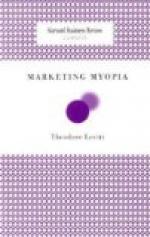There was after that a troop of still haughtier heroes, namely, the seven sons of Ailill and Medb, each of whom was called “Mane.” And each Mane had a nickname, to wit, Mane Fatherlike and Mane Motherlike, and Mane otherlike, and Mane Gentle-pious, Mane Very-pious, Mane Unslow, and Mane Honeyworded, Mane Grasp-them-all, and Mane the Loquacious. Rapine was wrought by them. As to Mane Motherlike and Mane Unslow there were fourteen score in the body of their marauders. Mane Fatherlike had three hundred and fifty. Mane Honeyworded had five hundred. Mane Grasp-them-all had seven hundred. Mane the Loquacious had seven hundred. Each of the others had five hundred in the body of his marauders.
There was a valiant trio of the men of Cualu of Leinster, namely, the three Red Hounds of Cualu, called Cethach and Clothach and Conall. Now rapine was wrought by them, and twelve score were in the body of their marauders, and they had a troop of madmen. In Conaire’s reign a third of the men of Ireland were reavers. He was of sufficient strength and power to drive them out of the land of Erin so as to transfer their marauding to the other side (Great Britain), but after this transfer they returned to their country.
When they had reached the shoulder of the sea, they meet Ingcel the One-eyed and Eiccel and Tulchinne, three great-grandsons of Conmac of Britain, on the raging of the sea. A man ungentle, huge, fearful, uncouth was Ingcel. A single eye in his head, as broad as an oxhide, as black as a chafer, with three pupils therein. Thirteen hundred were in the body of his marauders. The marauders of the men of Erin were more numerous then they.
They go for a sea-encounter on the main. “Ye should not do this,” says Ingcel: “do not break the truth of men (fair play) upon us, for ye are more in number than I.”
“Nought but a combat on equal terms shall befall thee,” say the reavers of Erin.
“There is somewhat better for you,” quoth Ingcel. “Let us make peace since ye have been cast out of the land of Erin, and we have been cast out of the land of Alba and Britain. Let us make an agreement between us. Come ye and wreak your rapine in my country, and I will go with you and wreak my rapine in your country.”
They follow this counsel, and they gave pledges therefor from this side and from that. There are the sureties that were given to Ingcel by the men of Erin, namely, Fer gair and Gabur (or Fer lee) and Fer rogain, for the destruction that Ingcel should choose to cause in Ireland and for the destruction that the sons of Donn Desa should choose in Alba and Britain.
A lot was cast upon them to see with which of them they should go first. It fell that they should go with Ingcel to his country. So they made for Britain, and there his father and mother and his seven brothers were slain, as we have said before. Thereafter they made for Alba, and there they wrought the destruction, and then they returned to Erin.




